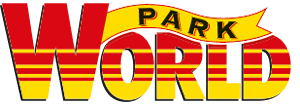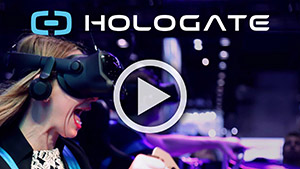Raymond Oude Groen, co-founder of Imagine Leisure, shares his thoughts on A-Z project planning, investment in the leisure industry and the long-term effects of the COVID-19 crisis.
Most companies are often only able to only take care of a specific phase within an overall whole project. Some companies, for example, specialise in market analysis or feasibility studies, or focus on masterplanning or construction.
Imagine Leisure, however, prides itself on realising the full ambition of a client, from A-to-Z: taking care of every step and operating as a project manager to achieve the objectives of the client. This could be an expansion of a current operation to more locations within the country or abroad, or it could be the development of an existing facility – for example, improving the guest experience or customer flow, or optimising the business case.
Some projects need specialised work, and in those cases Imagine Leisure collaborates with experts in the field, such as businesses focusing on design or feasibility studies.

The company is based in the Netherlands, officially located in the city of The Hague, but with a flexible set up removing the need for a head office.
In addition to the two owners, the company has a number of project managers, depending on the needs of a specific project.
Governments and real estate developers or owners are also a key part of Imagine Leisure’s client base. In particular, Imagine Leisure works with regions or cities aiming to strengthen their leisure sector either with new facilities or with the improvement of those they already have. The service that Imagine Leisure provides hasn’t changed much since the launch of the company, but the type of clients has shifted over the years, depending partly on economic developments. In the current pandemic crisis, for example, leisure operators have become less focused on developing their venues.
Key Imagine Leisure projects
- Helping a client becoming the owner of a small theme park and further developing the park. We’ve been involved in finding the right park, negotiations, finding financing, quick-wins after takeover and improving the guest experience and marketing.
- Creating a concept for a beautiful old city hall, including creating the storyline, sketches and setting up the business case.
- Analysing and developing scenarios for future developments of a location of one of the biggest leisure operators of The Netherlands, Libema
Not every project is easy or ends with success, especially projects that are developed for governments, which are often related to political influences. These can change the objective or can even result in the termination of a project before it has been finalised.


Looking ahead to 2020
2020 has become the most bizarre year in the history of the leisure industry. Up to February, the outlook for the industry was a very positive one, with further growth in visitor numbers and global tourism expected. There were a lot of investments in new facilities or the improvement of existing venues. This improvement of quality has been one of the main trends of the last couple of years, linked to the increasing demand of visitors for high-quality and optimal guest experiences. Often, these have been improved by technological developments, making processes faster and easier and – as a result- letting employees focus on the guest interaction and hospitality towards visitors. Within the leisure sector, we have seen increasing blurring of the various segments, such as entertainment, culture, accommodation, retail and F&B.
Of course, since the end of February everything has changed: in almost every country of Europe and many other countries across the globe, there are complete lockdowns, which have had a huge effect on the visitor industry. We are quite worried about how this will affect the industry and how it will recover. For Imagine Leisure it also had quite an impact: various assignments have been postponed or even terminated. Because we owe our existence to this great industry and all the various leisure operations within it, we have shifted our attention towards helping them in any way we can and providing information which is useful. We believe that we can emerge from crisis stronger than before and we have to try to do everything we can to help the industry in coping. A couple of projects are still ongoing, but have been delayed because of the lockdown. Work on analysis, location studies and setting up business cases can still be done from home, but at the same time, what will a business case look like in the future if the need for social distancing remains in the industry?
Effects of the crisis
“There is light at the end of this lockdown tunnel… countries are testing, re-opening and adjusting ways of operations.”
Slowly, there is light emerging at the end of this lockdown tunnel, and various countries are testing re-opening strategies and adjusted ways of operation. In some countries visitors are showing little fear of going out and experiencing leisure activities. In others, however, especially in the short-term, people are staying close to home and within their own country. This will have an effect on the occupancy rates of the various leisure operations. Operators that are focused on international tourists will be struggling, just like operations that have close proximity or are mostly indoors – small museums, wellness centres or tourist attractions in particular. Operations that are outdoor and spacious, that can be experienced in small groups, and that are targeted at local or regional visitors can benefit most – for example, a fantasy play forest, a trampoline park or walk-through experience. We also expect quite a difference in facilities that are seasonal and have their peak attendance in spring or summer, as well as those who have less seasonality or have their peak in winter. The companies that are most likely to emerge stronger from this crisis are the ones who have a healthy financial balance and a significant reserve.
In the longer term, history has shown that the industry is very resilient and that over the years the demands can return quickly and stronger than before. Spending spare time in an active, positive way has become a necessity instead of a luxury. Whether it will return to normal is at this point difficult to say, because we don’t know how long the virus will last and if it has changed the way people look at hygiene permanently. Imagine leisure will focus the upcoming year on helping the industry adjust and emerge stronger.

